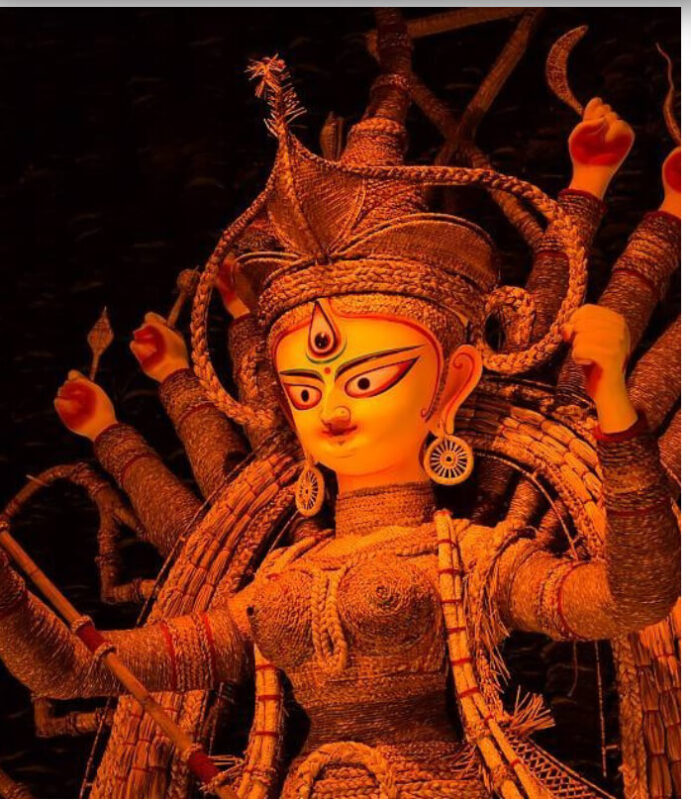15th December 2021 – The festival of Durga Puja, which is celebrated in India and many other parts of the world by Hindus, is the latest addition on the list of UNESCO’s Intangible Cultural Heritage of Humanity. This decision was made during the 16th session of the Intergovernmental Committee for safeguarding of the Intangible Cultural Heritage.
As a ten-day celebration, Durga Puja represents the collective worship of the Hindu Goddess Durga. During this time, masterfully designed clay models of the Goddess are worshipped in “pandals” or pavilions where communities get together and celebrate. Several folk music, culinary, craft, and performing arts traditions add to the dynamism of this celebration.
Eric Falt, who is the Director UNESCO in New Delhi extended his warm wishes and congratulated all Indians. He said “I would like to offer warm congratulations to India, its people and especially all those who worked on the nomination dossier. I am confident that this inscription will offer encouragement to the local communities that celebrate Durga Puja, including all the traditional craftspeople, designers, artists, and organizers of large-scale cultural events, as well as tourists and visitors who partake in the inclusive festivity that is Durga Puja.”
The general convention for Safeguarding of Intangible Cultural Heritage was passed by UNESCO in 2003 with the below goals: –
(a) to safeguard the intangible cultural heritage;
(b) to ensure respect for the intangible cultural heritage of the communities, groups and individuals concerned;
(c) to raise awareness at the local, national and international levels of the importance of the intangible cultural heritage, and of ensuring mutual appreciation thereof;
(d) to provide for international cooperation and assistance.
After this listing, India’s inscription total in this category has gone up to 14. The other elements have been inscribed as Intangible Cultural Heritage include Ramleela, Tradition of Vedic chanting, Kutiyattam, Sanskrit Theatre, Kalbelia folk songs and dances, Buddhist Chanting, Sankirtana of Manipur, Yoga, Navroz and Kumbh Mela.


You’ve made some decent points there. I checked on the net to learn more about the issue and found most individuals will go
along with your views on this website.